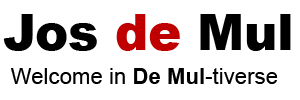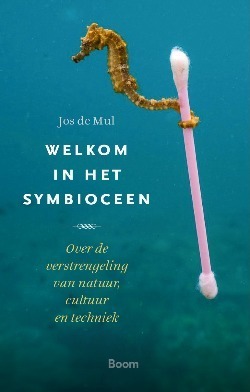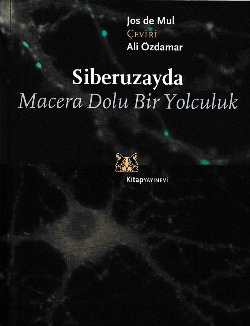Jos de Mul. The syntax, pragmatics and semantics of life. Reading Dilthey in the light of contemporary biosemiotics, in: Christian Damböck, Hans Ulrich Lessing (Hrsg.): Dilthey als Wissenschaftsphilosoph. Freiburg: Verlag Karl Alber, 2016, 156-175.
Seitdem ich aber in der Struktur des Lebens die Grundlage der Psychologie erkannte, mußte ich den psychologischen Standpunkt zu dem biologischen erweitern und vertiefen.
Wilhelm Dilthey (1995/9)
Introduction[1]
 Does Dilthey’s hermeneutics of life (Lebensphilosophie) have any relevance for contemporary discussions in the philosophy of biology? In this contribution, I will argue that it does. In order to substantiate this claim, I will relate Dilthey’s hermeneutic philosophy of life to contemporary developments in biosemiotics. In this context, I will focus in particular on the specific space the life sciences (Lebenswissenschaften) occupy in-between the natural sciences (Naturwissenschaften) and the human sciences (Geisteswissenschaften).
Does Dilthey’s hermeneutics of life (Lebensphilosophie) have any relevance for contemporary discussions in the philosophy of biology? In this contribution, I will argue that it does. In order to substantiate this claim, I will relate Dilthey’s hermeneutic philosophy of life to contemporary developments in biosemiotics. In this context, I will focus in particular on the specific space the life sciences (Lebenswissenschaften) occupy in-between the natural sciences (Naturwissenschaften) and the human sciences (Geisteswissenschaften).
Unlike most other contributions to this volume, I will approach my subject from a systematic rather than a historical perspective. In connecting Dilthey’s philosophy to contemporary developments in the life sciences and biosemiotics my approach resembles the one Christian Damböck takes in his recent analysis of Dilthey’s empirical philosophy in relation to recent methodological and ontological disputes in analytical philosophy on the role of philosophy vis-à-vis the natural sciences.[2] The debates in the contemporary life sciences and biosemiotics which I will address are connected with methodological and ontological issues and the relationship between philosophy and the natural sciences too.
Mainstream Neo-Darwinian biology is characterized by a “greedy reductionism”[3] and a mechanistic naturalism, but in the past few decades Neo-Darwinist orthodoxy has been criticized increasingly from various sides.[4] Partly, this critique was formulated within the prevailing reductionist and mechanistic paradigm. In those cases, it primarily aims at a broadening of this paradigm. We may think, for example, of the debates on top-down causation in systems biology.[5] However, oftentimes the critique is more radical, aiming at nothing less than a paradigm shift in the life sciences, which would lead these sciences beyond orthodox Neo-Darwinism. Examples of this critique can be found, for example, in (the recent re-emergence of) emergentism in the so-called sciences of complexity, such as chaos theory, network theory, nonlinear systems, self-organizing and –constructing systems theory[6] and also in the fast expanding field of epigenetics, which studies non-genetic systems and processes of inheritance, which has given rise to a remarkable rehabilitation of Lamarck in the life sciences.[7] Finally, orthodox Neo-Darwinism has been criticized by biosemiotics,which analyzes the role codes, signals, signs and their interpretation play in living matter.[8] Although these approaches point to various differences, they all share the fundamental claim that the mechanistic principles that govern the micro-level are inadequate in their ability to take account of the behavior and activity of living matter.
Although these different critiques are connected in several ways, in the following I will focus in particular on biosemiotics, because this field presents striking similarities with Dilthey’s empirical philosophy. Let me begin with a short overview of my paper. In the firstpart I will elucidate the similarities between recent biosemiotics and Dilthey’s philosophy of life, as expressed in the Berliner Entwurffor the second Volume of the Critique of Historical Reason(1893), especially in the fragment entitled Leben und Erkennen. Within this context I will also discuss some recent contributions to Dilthey Studies. Besides the aforementioned article of Christian Damböck’s on the empirical character of Dilthey’s philosophy, I will refer to Matthias Jung’s interpretation of Dilthey’s philosophy of life in his article ‘“Das Leben artikuliert sich”. Diltheys performativer Begriff der Bedeutung Artikulation als Fokus hermeneutischen Denkens‘[9] and his book Der bewusste Ausdruck.Anthropologie der Artikulation.[10] I will defend the thesis that both Dilthey and biosemiotics defend an emergent evolutionary theory proclaiming that life develops itself through a series of qualitatively different stages characterized by increasingly complex forms of semiosis.
In the second and final part I will analyze these stages in more detail, with the help of the semiotic distinction between syntax, pragmatics and semantics. Furthermore, I will elucidate Dilthey’s developmental model of life by referring to Marcello Barbieri, one of the leading biosemioticians. The resulting layered biohermeneutics functions as a “ladder of understanding”, which helps us to better fathom the subsequent stages in the process in which life understands life, “Leben erfaßt hier Leben”.[11]








